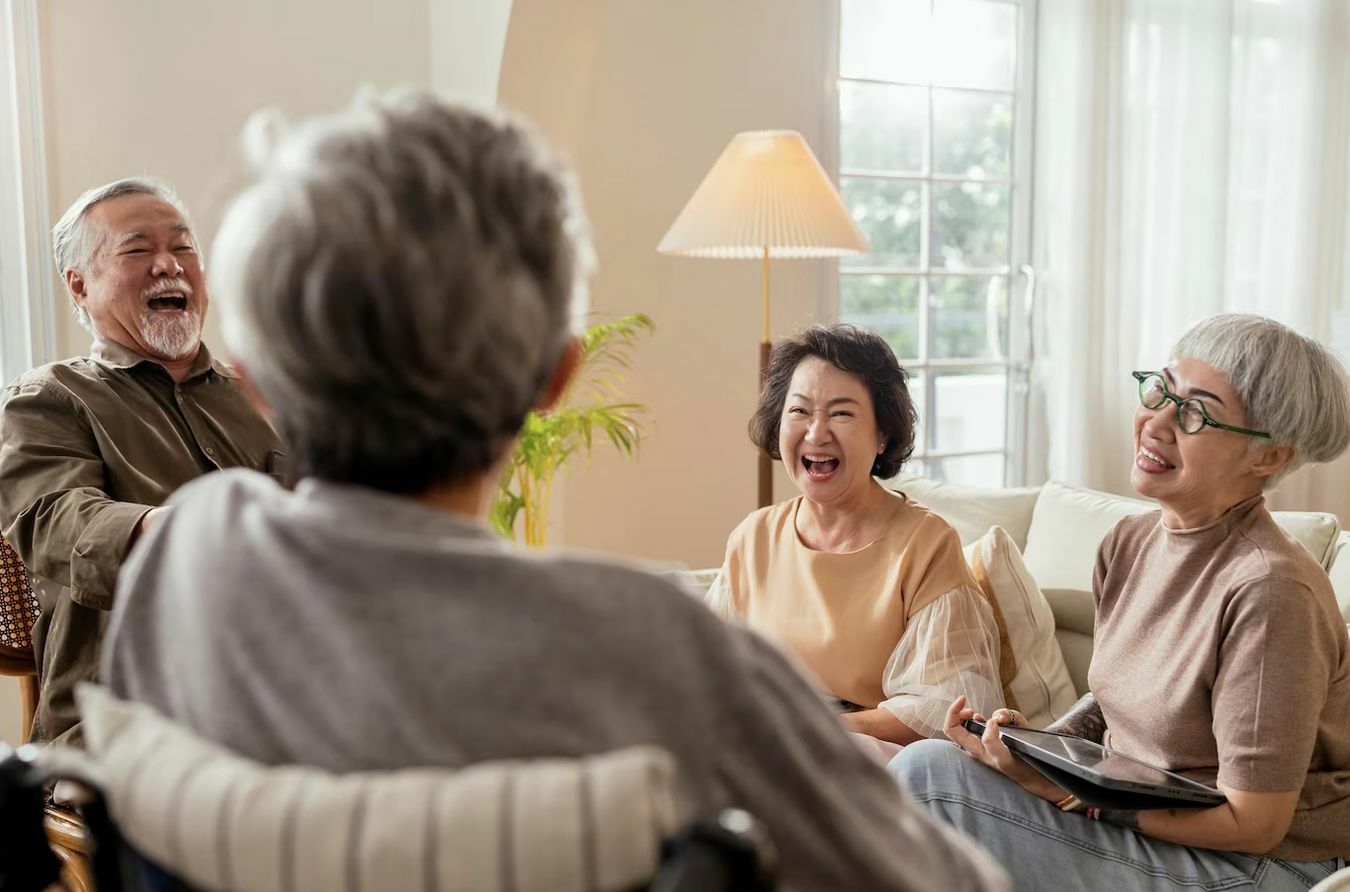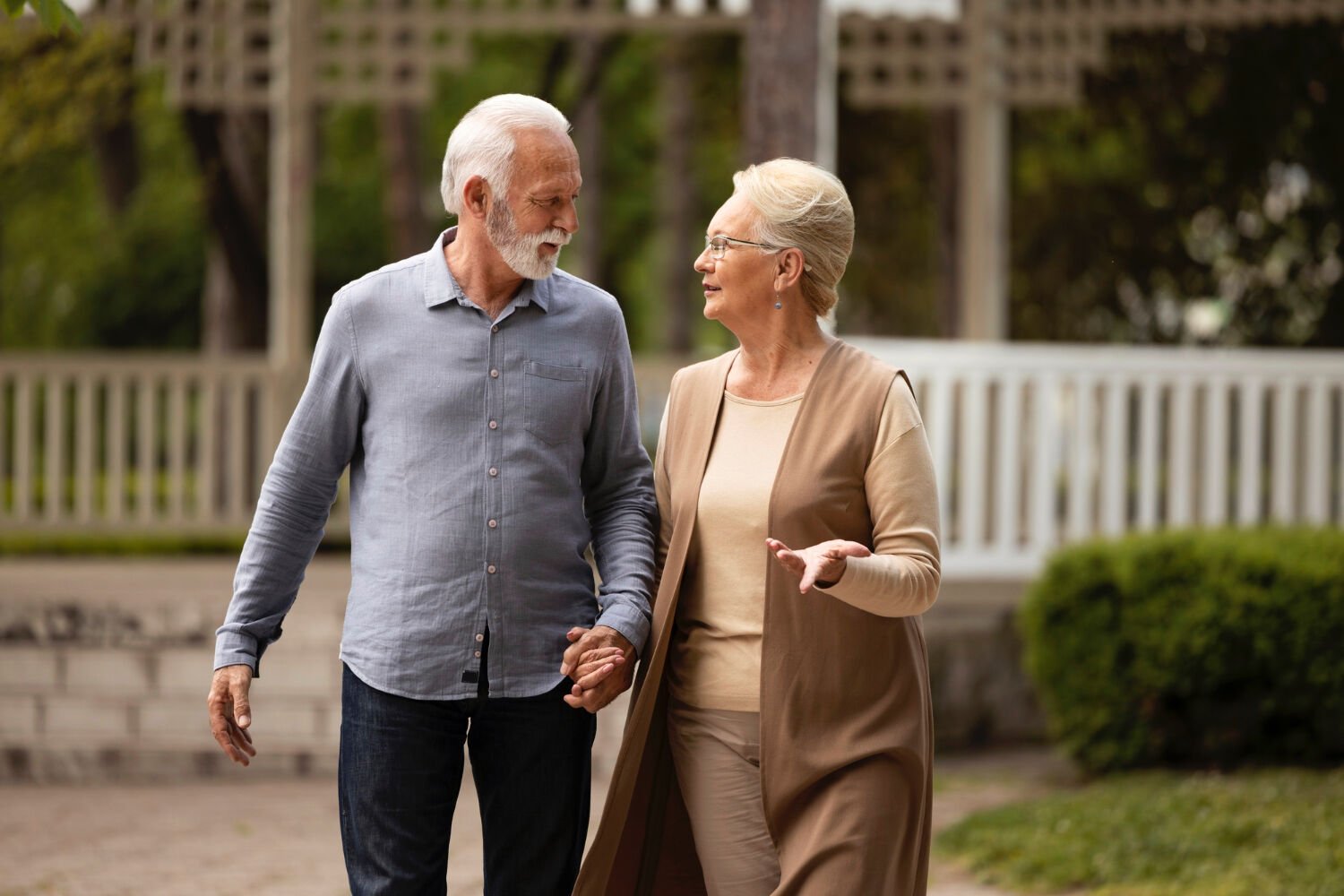How much does a retirement home cost in Thailand?

Ageing is an inevitable part of our life cycle. And as you reach your golden years, planning for retirement becomes increasingly important. If you have set your sights on spending your retirement in Thailand, understanding the cost of a retirement home should be a priority. The beauty of Thailand extends beyond gorgeous landscapes and rich culture; it also offers a range of high-quality older people care options. Below, we’ve broken down the various costs associated with your potential future home – retirement homes in Thailand.
Why choose to retire in Thailand?

Choosing to retire in Thailand is a decision favoured by many retirees around the world, and it’s easy to see why. For many, the low cost of living is a clear draw. Your money will go much further in Thailand compared to other (Western) countries such as the US and UK, allowing for a more comfortable lifestyle.
Combined with a high quality of life illuminated by friendly locals and pleasant weather, it becomes the more attractive option. The welcoming environment is such that you can live comfortably even without being fluent in the local language, although basic Thai can certainly enhance the experience.
Healthcare, an important consideration for anyone retiring, in Thailand is highly regarded worldwide. Receiving top-notch medical treatment at a cost significantly lower than in your home country makes it an appealing prospect. If you want to know what healthcare is like in Thailand, check out our article “Healthcare for retirees.”
There’s also a myriad of retirement homes spread across the country, providing you with a choice of locations. Whether it’s the bustling streets of Bangkok or the tranquil shores of Phuket, you have the freedom to choose a retirement home that best suits your needs and preferences. These retirement homes also have a team of English-speaking staff ready to ensure your stay is comfortable and hassle-free.
In essence, the warmth and simplicity of Thailand’s charm, notably decent healthcare, more affordable living costs, and the friendliness of its people make it a first-class retirement destination. Here, you’re not just retiring; you’re embracing a lifestyle that is better for your health, wallet, and spirit.
What can you expect from retirement homes in Thailand?
Before we talk about the costs, let’s first discuss what you can expect from retirement homes in Thailand.
Over the years, retirement homes in Thailand have undergone a remarkable transformation. No longer just senior housing, they now offer a vibrant atmosphere akin to a modern vacation residence, with the crucial benefit of assisted living services included. This can significantly simplify your life as a retiree in Thailand.
These havens of tranquility are strategically placed outside bustling city centers. Imagine waking up to serene lakes and majestic mountains – the perfect backdrop for enjoying Thailand’s diverse natural beauty. Yet, you won’t be completely isolated. Regular shuttle services ensure easy access to city life whenever you crave it. To prioritize your well-being, these retirement communities partner with nearby hospitals, providing in-house healthcare professionals. Additionally, you can expect English proficiency from all their staff, guaranteeing clear communication and a smooth transition into your new life.
The services and facilities typically offered in Thai retirement homes cover a wide spectrum. These include:
1. Rooms

Retirement homes in Thailand aim to provide a homely environment that offers not only comprehensive care but also a comfortable living space. Offering care akin to a high-end hotel as opposed to a traditional care home, residents can experience added luxuries and a touch of familiarity in their day-to-day lives.
The rooms on offer in these homes are fully furnished, allowing residents a sense of ease as they settle into their new surroundings. The facilities extend beyond the standard necessities, including features such as air conditioning for Thailand’s tropical weather, as well as the provision of English television channels for residents to keep in touch with international news and entertainment.
In addition, these usually provide conveniences like a small kitchen equipped with a microwave and a refrigerator. This allows residents the choice to prepare a quick snack or a preferred meal independently. Regular cleaning services are also readily available to ensure a hygienic and orderly environment that contributes towards a healthier living space.
Safety measures within these rooms are given priority to best cater to the residents’ needs. Emergency alarms and CCTV are, as standard, a part of the rooms, ensuring that help from in-house medical staff is readily available at a moment’s notice.
Understanding that personal preferences vary, retirement homes provide the choice between shared and private rooms. Shared rooms typically accommodate four to six residents, fostering community living, while private rooms cater for those who prefer a quieter and more personal space.
2. Assisted living facilities
Retirement homes in Thailand are equipped with assisted living facilities to ensure your needs are well catered for. An in-house team of healthcare professionals is available to monitor your health through regular checkups. The rooms are designed with safety in mind, offering 24-hour security and the provision of telephones or emergency buttons that link directly to in-house nurses for immediate response.
Furthermore, if you need physical therapy or diet customisation, some retirement homes also have professional therapists and nutritionists readily available to you. Physical therapists will guide you through exercises to maintain muscle flexibility and strength, while the nutritionists assist in devising dietary plans conducive to your health. The availability of group activities is another feature that helps to keep you physically active and socially engaged. For easy mobility within the premises, wheelchairs can also be easily accessed. This network of care within these homes aims to support a healthier and more fulfilling lifestyle during your retirement years.
3. Facilities

Retirement homes in Thailand are designed to offer a comfortable and enriching experience for retirees, much like a stay at a fine hotel. They typically come fully equipped with a range of facilities, including gyms and swimming pools, aimed at promoting physical health and well-being.
For those in search of relaxation and personal care, many establishments provide spa services as a standard feature of their offering, ensuring retirees can enjoy a holistic and rejuvenating experience without leaving the premises. In addition, while some homes boast an onsite salon for hairdressing and other personal grooming needs, others ensure these services are within reach by arranging for the hairdresser or other professionals to visit the home when needed.
4. Food
When it comes to culinary offerings, retirement homes in Thailand cater to a variety of palates by offering both Thai and international cuisine. This ensures that residents can enjoy a diverse menu during their stay. Breakfast is typically included in the package, laying the foundation for a nourishing start to the day.
However, it’s important to note that lunch and dinner might not be part of the standard pricing structure. So, when considering a retirement home and receiving a quote, it’s advisable to inquire about what meals are included in the weekly rate. This will provide you with a comprehensive understanding of the services provided and the accompanying costs. Therefore allowing you to plan your retirement living effectively and according to your dietary preferences.
5. Medical care

Retirement homes in Thailand usually have medical staff and physical therapists ready to help you out with regular health checkups and simple treatments. Therefore, you don’t need to travel just to see a doctor or therapist.
And that’s not all. Physiotherapy services are also available in these places.
But what if you fall seriously ill? You won’t be left with just paracetamol and a hot water bottle. In these situations, they’ll quickly get you to a nearby hospital for more thorough medical care.
6. Nursing
Most retirement homes in Thailand offer nursing services, but they are not typically part of the standard package and come with an additional cost.
Should you need a full-time nurse, you’ll be looking at a monthly cost of around 35,000 THB. For those of you who might only need part-time care, such as eight hours a day, this goes down to approximately 12,500 THB per month.
Nursing services are also available if you want to live in your own home in Thailand instead of in a retirement home. Some retirement homes allow their nurses to provide services in private residences. Simply reach out to the retirement homes to inquire about this option.
7. Getting around

In Thailand, retirement homes typically offer transportation services similar to what you would expect from a hotel. If you feel like visiting a nearby park or popping out for some light shopping, a private minivan can take you there. It offers a level of freedom and ensures you can get out and about with ease.
If you’re not comfortable navigating the local area alone, that’s also taken into account. A carer can accompany you, offering peace of mind on these little excursions.
8. Visa
In Thailand, like any other country, there are visa requirements to respect, one of which is reporting to immigration every 90 days. It could seem daunting being in a new country and having to understand all the requirements. Luckily, however, many retirement homes that serve expats have dedicated in-house staff to take care of your Thai retirement visa. They can handle tasks like this 90-day check-in. Thus, ensuring you keep your visa active and you comply with all the necessary requirements.
9. Stay duration

Your stay length at a Thai retirement home is flexible and largely depends on your needs and circumstances. Whether you’re recovering from surgery and need a short-term place or you’re looking for a long-term stay because your family isn’t around, the choice is yours.
Choices could range from a short, restful break over the weekend to several months of relaxation or even a stay extending over six months. Flexibility really is the name of the game here. Remember, you’re paying for the service, so don’t feel pressured to adhere to a rigid timeframe. It really is all up to you.
10. Funeral arrangements
Certainly, it’s a topic many prefer to side-step. However, discussing funeral arrangements is an important part of planning your stay with retirement homes in Thailand. They will ask your preferences should the inevitable occur, as morose as the subject might sound.
It’s a standard question and part of your care plan agreement even before you settle in. Would you prefer to be cremated? Do you have any specific wishes for a funeral? Would you want your ashes sent back to your family in your home country? These are all things to consider.
Possibly, you might already have these aspects sorted out and stated in your Will, and your family will already be in the know of your preferences. Should you pass away without leaving any explicit instructions, the retirement home will reach out to your relatives for the next steps.
In the scenario where your relatives can’t be reached, cultural respect is maintained in Thailand. Your body would be taken to a local temple for cremation following Buddhist customs, complete with blessing chants by the monks.
What are the costs of retirement homes in Thailand?

The costs of retirement homes in Thailand are largely influenced by a wide range of factors. Primarily, costs depend on your personal health condition and the retirement home you opt for. It’s worth noting that prices increase with age and the level of medical assistance required.
If you’re able to look after yourself, this naturally cuts down the costs significantly, as a full-time nurse would not be required. The prices also vary based on whether the retirement home caters to expats or locals. The latter often being more affordable due to the lower salaries of Thai-speaking staff.
To give you an idea, the starting price at Ban Sabai Village is 42,000 THB per month. On the other hand, Baan Lalisa charges only 20,000 THB per month. However, these starting prices usually cover just the basic services. For example, a shared room, housecleaning, breakfast, and amenity usage like the gym, swimming pool, and spa.
Additional services such as a private room, nursing services, lunch and dinner, transportation services, and other medical services will usually incur extra charges. Therefore, the listed price on a retirement home’s website can increase substantially based on your needs. If you add in all the extra services and facilities, you can expect to spend about 70,000 to 150,000 THB monthly.
For a more accurate understanding of costs, you will need to contact the retirement home directly. They’ll typically ask about your age, health condition, and requirements before providing a personalised quote. So, while the market is increasingly competitive, it’s worth shopping around to find a retirement home in Thailand that meets your needs and your budget.
Do you need to pay a deposit?

Yes. Whichever retirement home in Thailand catches your fancy, please note that there’s an upfront payment requirement. This is customary in Thailand. Similar to standard practices when renting a property, you’ll typically need to pay two months in advance. Essentially, this is split across your first month’s payment and a deposit for one month.
In some instances, you might encounter a ‘fixed fee’ as a deposit, which can start at around 20,000 THB. This deposit functions as insurance against damages or if you leave without settling your bills.
However, these deposit amounts aren’t set in stone and can vary from home to home. Hence, when you’re making your inquiries, remember to ask about this upfront payment to avoid any surprises down the line. Allowing yourself to be clear on all costs involved will enable a smooth transition into your chosen retirement home.
How can you choose the right retirement home in Thailand?

Deciding on the perfect retirement home in Thailand heavily depends on personal preferences and needs. An essential initial step is considering the location. Accessibility is key, whether it’s for your own exploration or an easier commute for visiting family and friends. Studying your potential surroundings is also crucial. Are you a beach bum or a nature enthusiast? Or perhaps you find the city’s hum more appealing?
Visiting retirement homes in person is highly advised since this decision cannot conform to a one-size-fits-all approach. Inspect the rooms, interact with the staff, and speak to current residents. It’s also a good idea to try out the food. Basically, try to immerse yourself in the environment.
Also, visit the prospective locations at different times of the day to understand what living there would truly be like. And speaking of location, it’s ideal if the retirement home isn’t far from your preferred hospital for treatments and your family if they reside in Thailand.
Of course, at the end of the day, your decision will be heavily influenced by your financial means. Be sure to budget thoroughly. Make sure that you can afford the home and still have a buffer for unforeseen expenses such as medical treatments. Remember, the most expensive option doesn’t always guarantee the best experience. So take your time, evaluate all aspects and then make your choice.
The bottom line

Retiring in Thailand brings a whole host of advantages, from the sun-drenched climate to the alluring local culture. But ensuring you choose the right retirement home for your golden years is paramount. Now that you have a clearer idea of what these homes offer and the associated costs, it’s time to narrow down the field and find that idyllic haven which ticks all your boxes.
Not sure where to start? Be sure to read our article on the 5 Best Retirement Homes to Spend Your Golden Years.
Remember, retirement is your time to relax and immerse yourself in a life of leisure. Here’s to making that time as enjoyable and worry-free as possible!
Latest Thailand News
Follow The Thaiger on Google News:


























